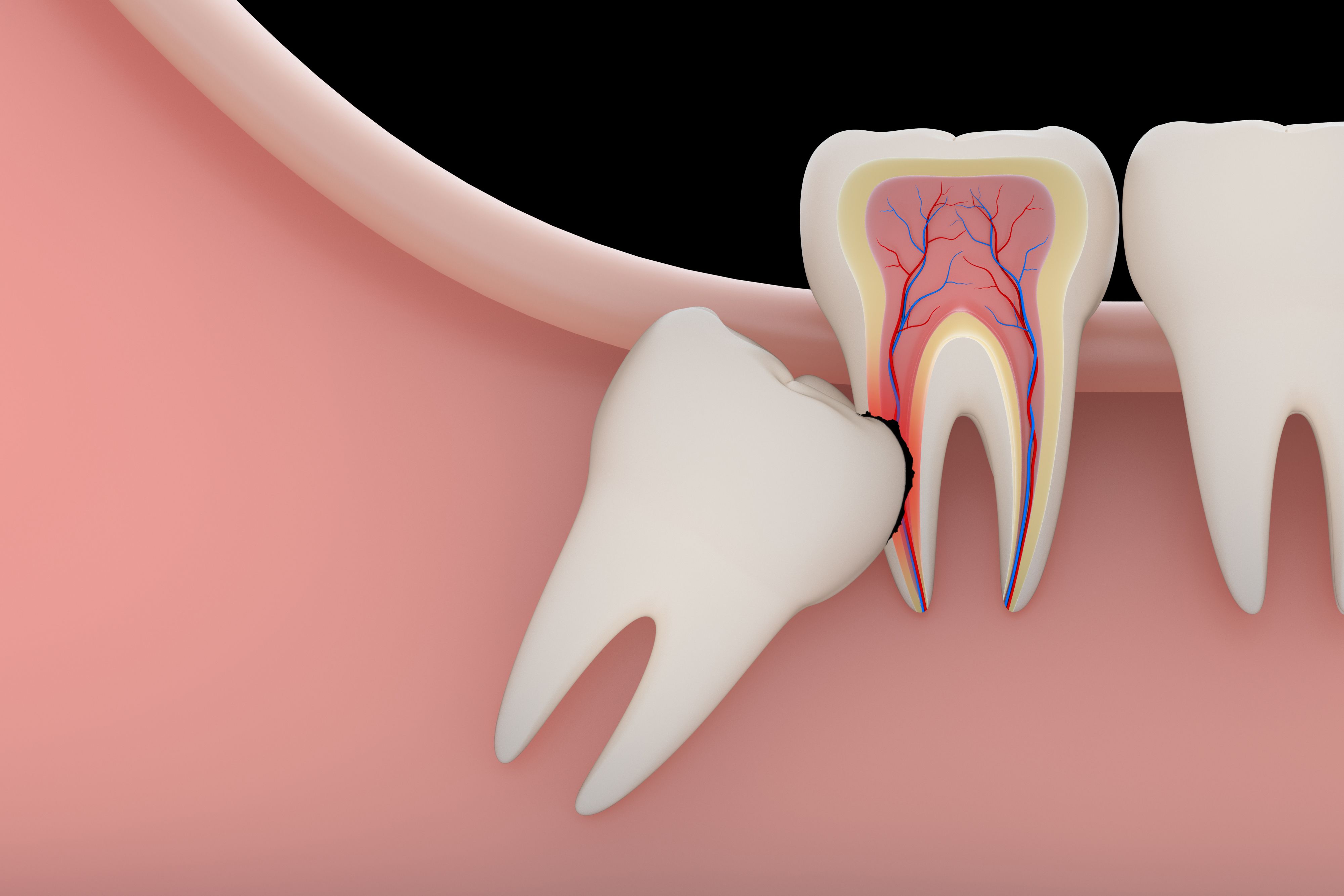
Wisdom teeth are the last teeth to erupt in the mouth. Technically, they are called the 3rd molars, because they erupt behind the 2nd molars in the mouth. We have 4 wisdom teeth, two in the upper arch and two in the lower. The wisdom teeth are the ones least needed for good oral health. They may not erupt or emerge from your gums until your late teens or early twenties – if they erupt at all. Most often, they are impacted or trapped in the jawbone and gums, usually because there is not enough room for them in your mouth. Our jaws are smaller than those of early humans, who needed large jaws and more teeth for their tougher diet. We don’t need that extra chewing power any more. In fact, wisdom teeth often do more harm than good, and in-case of any problems related to them, your dentist would suggest removing them.
There are 4 possible ways in which wisdom teeth may cause problems:
- Most people are aware of the pain experienced during the eruption of these teeth. This generally happens because these partly erupted teeth are difficult to keep clean, and the accumulated food particles cause the gums around the tooth to get infected. Such an infection is felt as swelling and pain around the area. Sometimes the tooth is trying to erupt, but has not yet broken through the gums. When the upper tooth bites down onto this gum, pain can be caused.
- It sometimes happens that there is not enough space in the mouth for these teeth to erupt. In such cases, they may try to erupt in an abnormal direction or may get locked into the jaw. This locking is known as impaction.
- An impacted or erupting wisdom tooth can push on adjacent teeth, causing them to become crooked or even damaging them structurally.
- If the sac that holds the crown of the wisdom tooth remains in the bone, it can fill with fluid, forming a cyst that can destroy surrounding bone.
Gum Disease:
Impacted:
Crowding:
Cyst:
